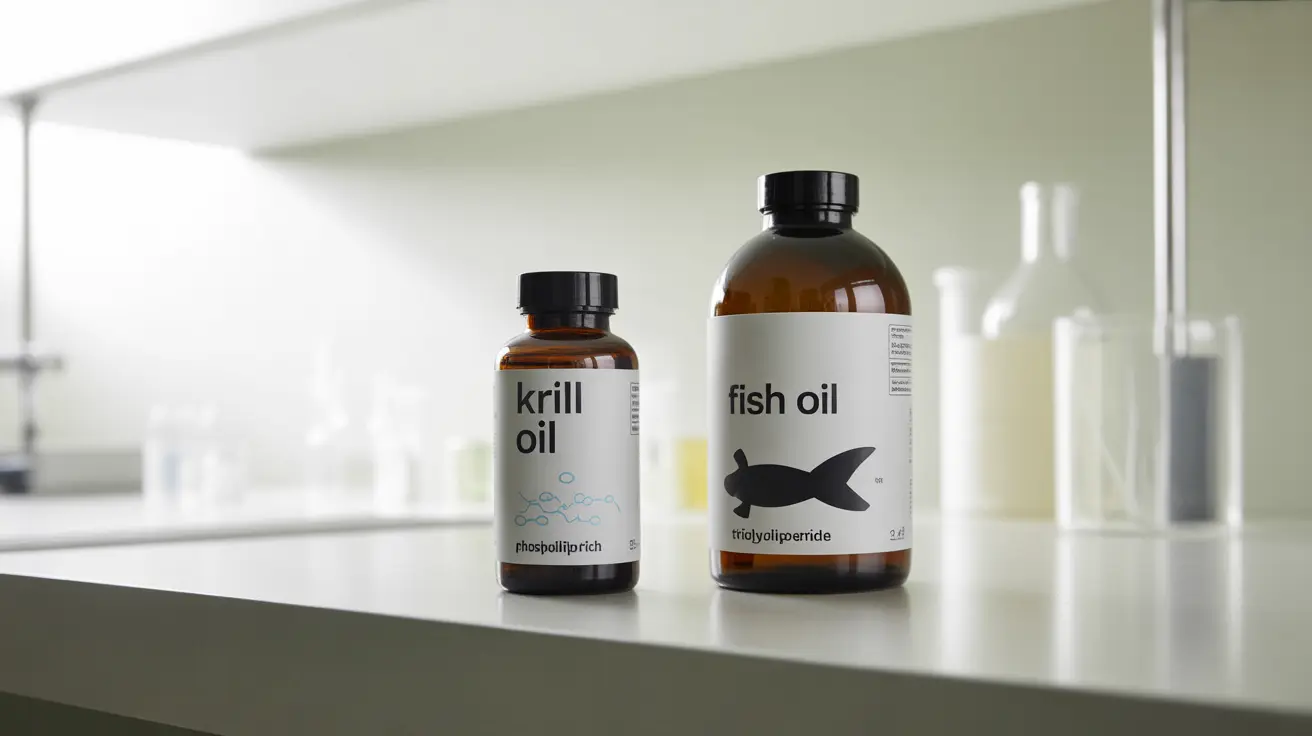For those seeking to boost their omega-3 intake, the choice between krill oil and fish oil supplements can be confusing. While both supplements provide essential omega-3 fatty acids, they have distinct characteristics that set them apart. Understanding these differences can help you make an informed decision about which supplement might better suit your needs.
In this comprehensive guide, we'll explore the unique properties of krill oil and fish oil, examining their composition, absorption rates, health benefits, and potential side effects to help you determine which option might be right for you.
Understanding the Sources and Composition
Fish oil is typically derived from fatty fish such as salmon, mackerel, and sardines. The omega-3 fatty acids in fish oil come in the form of triglycerides or ethyl esters. Krill oil, on the other hand, is extracted from tiny crustaceans called Antarctic krill. Its omega-3s are primarily bound to phospholipids, which may influence how the body processes these nutrients.
Absorption and Bioavailability
One of the key differences between these supplements lies in their absorption rates. Krill oil's phospholipid structure may enhance its bioavailability, potentially allowing for better absorption of omega-3s into the bloodstream. This unique characteristic might make krill oil more efficient, meaning you could potentially need a lower dose to achieve similar benefits.
Antioxidant Content and Additional Benefits
Krill oil contains astaxanthin, a powerful antioxidant that gives it a distinctive red color. This compound not only helps preserve the oil's freshness but also provides additional health benefits. Fish oil typically doesn't contain significant amounts of antioxidants, though some products may be fortified with vitamin E to prevent oxidation.
Cost Considerations and Sustainability
Krill oil generally comes with a higher price tag compared to fish oil supplements. This price difference reflects several factors, including the more complex harvesting process, specialized extraction methods, and the limited availability of krill. Both supplements raise environmental considerations, though krill harvesting is often touted as more sustainable when properly managed.
Digestive Comfort and Taste
Many users report that krill oil causes fewer digestive issues and less "fishy" burping compared to fish oil. This improved tolerability may be due to the phospholipid structure of krill oil and its smaller pill size, as lower doses are often needed.
Frequently Asked Questions
What is the difference between krill oil and fish oil in terms of omega-3 content and absorption? Krill oil contains omega-3s bound to phospholipids, which may be more easily absorbed by the body compared to fish oil's triglyceride or ethyl ester forms. However, fish oil typically contains higher concentrations of EPA and DHA per serving.
Are the health benefits of krill oil and fish oil the same or does one offer more advantages? Both supplements provide similar core benefits for heart, brain, and joint health. However, krill oil offers additional advantages through its astaxanthin content and potentially better absorption rate, though it typically contains lower doses of omega-3s per serving.
Why is krill oil usually more expensive than fish oil supplements? Krill oil's higher cost is due to more expensive harvesting methods, specialized extraction processes, and limited availability of Antarctic krill. The complex technology required to maintain the phospholipid structure also contributes to the cost.
Does krill oil cause less fishy aftertaste and digestive discomfort compared to fish oil? Yes, many users report experiencing less fishy burping and digestive issues with krill oil. This is likely due to its phospholipid structure and the fact that smaller doses are typically needed.
Which is better for improving heart health: krill oil or fish oil? Both supplements can support heart health effectively. While fish oil has been studied more extensively for heart health benefits, krill oil's better absorption and additional antioxidant content may offer unique advantages. The choice often comes down to personal preference and budget considerations.




